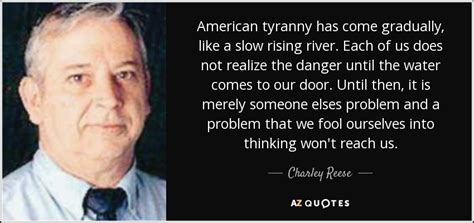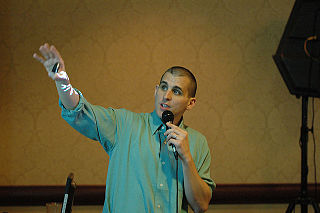Top 645 Myths Quotes & Sayings - Page 11
Explore popular Myths quotes.
Last updated on November 16, 2024.
If we [Americans] are a strong people, a united people, why do we always have to hear how great we are? What is this self-love? Where does this come from? It got worse, because after the war we thought we'd won it. That's the first myth. Frankly, Russia won it. The Soviet Union sacrificed far greater form than anyone else to win that war. Secondly, we had the atomic bomb. We should not have dropped it on Japan. We did as an example to the Soviets, not to defeat Japan and to save American lives. These are myths that we explode with a lot of research early on.
What we men share is the experience of having been raised by women in a culture that stopped our fathers from being close enough to teach us how to be men, in a world in which men were discouraged from talking about our masculinity and questioning its roots and its mystique, in a world that glorified masculinity and gave us impossibly unachievable myths of masculine heroics, but no domestic models to teach us how to do it.
What passes for identity in America is a series of myths about one's heroic ancestors. It's astounding to me, for example, that so many people really appear to believe that the country was founded by a band of heroes who wanted to be free. That happens not to be true. What happened was that some people left Europe because they couldn't stay there any longer and had to go somewhere else to make it. That's all. They were hungry, they were poor, they were convicts. Those who were making it in England, for example, did not get on the Mayflower. That's how the country was settled.
What will happen when my heart stops beating?" Momo asked. When that moment comes," said the professor, "time will stop for you as well. Or rather, you will retrace your steps through time, through all the days and nights, myths and years of your life, until you go out through the great, round, silver gate you entered by." What will I find on the other side?" The home of the music you've sometimes faintly heard in the distance, but by then you'll be part of it. You yourself will be a note in its mighty harmonies.
The subjects in my work appear as unidentified ghosts that can't be said to be of this world. I've decided to call them incarnations. In various religions, myths, and legends, the word "incarnation" refers to the birth or emergence of transcendent beings in the form of humans or other bodies. If "incarnation" denotes the appearance of an abstract being in some concrete form, in a gut ceremony, a shaman could be considered an incarnation of our desires, hopes, and sorrows. The incarnations that appear in my work are always new and I meet them for the first time by drawing them.
While I generally find that great myths are great precisely because they represent and embody great universal truths, the myth of romantic love is a dreadful lie. Perhaps it is a necessary lie in that it ensures the survival of the falling-in-love experience that traps us into marriage. But as a psychiatrist I weep in my heart almost daily for the ghastly confusion and suffering that this myth fosters. Millions of people waste vast amounts of energy desperately and futilely attempting to make the reality of their lives conform to the unreality of the myth.
Now the story of Christ is simply a true myth: a myth working on us the same way as the others, but with this tremendous difference that it really happened: and one must be content to accept it in the same way, remembering that it is God’s myth where the others are men’s myths: i.e., the Pagan stories are God expressing Himself through the minds of poets, using such images as He found there, while Christianity is God expressing Himself through what we call 'real things'.
Why are so many of us enspelled by myths and folk stories in this modern age? Why do we continue to tell the same old tales, over and over again? I think it's because these stories are not just fantasy. They're about real life. We've all encountered wicked wolves, found fairy godmothers, and faced trial by fire. We've all set off into unknown woods at one point in life or another. We've all had to learn to tell friend from foe and to be kind to crones by the side of the road. . . .
True myths may serve for thousands of years as an inexhaustible source of intellectual speculation, religious joy, ethical inquiry, and artistic renewal. The real mystery is not destroyed by reason. The fake one is. You look at it and it vanishes. You look at the Blonde Hero-really look-and he turns into a gerbil. But you look at Apollo, and he looks back at you. The poet Rilke looked at a statue of Apollo about fifty years ago, and Apollo spoke to him. "You must change your life," he said. When the true myth rises into consciousness, that is always its message. You must change your life.
When we come back to fantasy, I think we're actually coming back to the real bedrock of storytelling. Our national or international genre really is fantasy, if you think about the worldwide myths and legends and stories that we all know, whether we're talking about Little Red Riding Hood or the Arabian Nights or Noah's Ark or Hercules. These are stories that cross many cultures in much the same way that dragons cross many cultures.
We become male automatically because of the Y chromosome and the little magic peanut, but if we are to become men we need the helpof other men--we need our fathers to model for us and then to anoint us, we need our buddies to share the coming-of-age rituals with us and to let us join the team of men, and we need myths of heroes to inspire us and to show us the way.
If somebody harbours delusions, I think that should disqualify them from office, regardless whether the delusions are religious. Letting someone who thinks the god Jehovah will bail him out serve in public office is like letting a man who believes in Santa Claus run a Toys 'R Us.
The great enemy of the truth is very often not the lie - deliberate, contrived and dishonest, but the myth, persistent, persuasive, and unrealistic. Belief in myths allows the comfort of opinion without the discomfort of thought.
The myths underlying our culture and underlying our common sense have not taught us to feel identical with the universe, but only parts of it, only in it, only confronting it - aliens... within I don't know how many years, but in not too long a time, it's going to become basic common sense that you are not some alien being who confronts an external world that is not you, but that almost every intelligent person will have the feeling of being an activity of the entire universe.
Every nation-state tends towards the imperial - that is the point. Through banks, armies, secret police, propaganda, courts and jails, treaties, taxes, laws and orders, myths of civil obedience, assumptions of civic virtue at the top. Still it should be said of the political left, we expect something better. And correctly. We put more trust in those who show a measure of compassion, who denounce the hideous social arrangements that make war inevitable and human desire omnipresent; which fosters corporate selfishness, panders to appetites and disorder, waste the earth.
In myths and movies, the mentor can play a few roles: they bring the hero a magical gift, teach them how to use a special tool, or help the hero get unstuck. In a presentation setting, the presenter is the mentor. Our role as a presenter is similar to a mentor. We should be brining something of important value to our audience, they should not leave empty handed. There should be something useful and somewhat life-altering that we give them. It's not very often that we sit through a presentation and feel like we've sat at the feet of a mentor, but we should.
You are far more than your personality, more than your habits, more than your achievements. You are an infinitely complex human being with stories and myths and dreams- and ambitions of cosmic proportions. Don't waste time underestimating yourself. Dream big... Use the energy of your archetype to express the true reason you were born. Life was never meant to be safe. It was meant to be lived right to the end.
The main trend with the theme episodes is that anywhere there is a misconception about the way the physical world works, we're finding fertile material. Whether it's in a phrase like "going over like a lead balloon" or "a needle in a haystack," or tackling movie myths or even a genre, like MacGyver or James Bond, we're finding that all these things can lead to people believing the world works in a certain way. It might not be correct, but we can test out if it's true.
What they teach you as history is mythology and true mythology is far from fantasy -- it is our true history. A bulk of our real history can be found in Egyptian and Greek mythology. Yes, myths reveal to us worlds of other dimensions that make up our true reality. History books teach us that the minds of the past operated on the same frequency, dimension, or level of consciousness as we do now. Not true at all.
Sciences have the view of looking at the world as individual pieces and this has been going on now for about 300 years. Then we have the Darwinian myths that life is a struggle to survive. However all life is not about competition but about striving for wholeness. When we compete we are weak, and when we work together we are strong. My hope is that this will become common knowledge someday because this will transcend religion as we know it. We just need to start focusing on the commonalities of religion.
If you worship money and things, if they are where you tap real meaning in life, then you will never have enough, never feel you have enough. It's the truth. Worship your body and beauty and sexual allure and you will always feel ugly. And when time and age start showing, you will die a million deaths before they finally grieve you. On one level, we all know this stuff already. It's been codified as myths, proverbs, clichés, epigrams, parables; the skeleton of every great story. The whole trick is keeping the truth up front in daily consciousness.
Because so many poets have chosen a political idiom right now in the US and so many poets have assigned value and inherent knowledge to their racial identity and used that as a form of argumentation, I'm thinking now's a good time to buy low for my own poems and write poems that are deeply in the interior and the psyche. There are plenty of people out there working on subjects of political poetry, partisan poetry, all the way through to crossing the threshold of propaganda. I start thinking now's a good time for me to start writing about the myths of my own psyche.
Religions, of course, have their own demanding intellectual traditions, as Jesuits and Talmudic scholars might attest.... But, in its less rigorous, popular forms, religion is about as intellectually challenging as the average self-help book. (Like personal development literature, mass market books about spirituality and religion celebrate emotionalism and denigrate reason. They elevate the "truths" of myths and parables over empiricism.) In its more authoritarian forms, religion punishes questioning and rewards gullibility. Faith is not a function of stupidity but a frequent cause of it.
The ascendancy over men's minds of the ruins of the stupendous past, the past of history, legend and myth, at once factual and fantastic, stretching back and back into ages that can but be surmised, is half-mystical in basis. The intoxication, at once so heady and so devout, is not the romantic melancholy engendered by broken towers and mouldered stones; it is the soaring of the imagination into the high empyrean where huge episodes are tangled with myths and dreams; it is the stunning impact of world history on its amazed heirs.
When I write I am trying to express my way of being in the world. This is primarily a process of elimination: once you have removed all the dead language, the second-hand dogma, the truths that are not your own but other people's, the mottos, the slogans, the out-and-out lies of your nation, the myths of your historical moment - once you have removed all that warps experience into a shape you do not recognise and do not believe in - what you are left with is something approximating the truth of your own conception.
The collective unconscious appears to consist of mythological motifs or primordial images, for which reason the myths of all nations are its real exponents. In fact the whole of mythology could be taken as a sort of projection of the collective unconscious. We can see this most clearly if we look at the heavenly constellations, whose originally chaotic forms are organized through the projection of images. This explains the influence of the stars as asserted by astrologers. These influences are nothing but unconscious instrospective perceptions of the collective unconscious.
Had there been no Renaissance and no Italian influence to bring in the stories of other lands English history would, it may be, have become as important to the English imagination as the Greek Myths to the Greek imagination; and many plays by many poets would have woven it into a single story whose contours, vast as those of Greek myth, would have made living men and women seem like swallows building their nests under the architrave of some Temple of the Giants.
Authority never matches responsibility. That's one of the great myths and delusions of all times. Winning managers and individual performers at all levels know that effectiveness means building your own network and creating your own authority. Those who succeed always reach far beyond formal deputation, take initiatives, and take the heat when things go awry. That's true in the military in times of war, true for 200 person manufacturing firms, and true at giant automakers or software companies.
Crack in the early 1980s or mid 1980s I'm sorry is that one of the worst myth is that one hit and you're addicted for life. We saw that in 1980s and we're seeing it again with methamphetamine today, one hit and you're addicted and it simply not true, addiction requires work not the people should go out and experiment or do these themselves but the fact is that's a myth and the concern is that, it's dangerous because when people perpetuates that myths and then when young people are people actually try methamphetamine or crack cocaine and find that, that doesn't happen to them.
How did you learn all this?" Vic sighed. "See, while you spend all your time making out with Balthazar, and Raquel stays holed up with her art projects, and Ranulf's off studying his Norse myths again, i do something else. Something crazy. Something strange. I call it 'talking to other people.' Through this miraculous process, I am sometimes able to learn facts about two or three other human beings in a single day. Scientists plan to study my method." ~Vic
I consider myself a progressive, so my answer would be that we need to be progressive. For some reason the people in power in Mississippi still seem to be invested in these very American myths."The individual is alone." "We pull ourselves up by our bootstraps." "We create success for ourselves, and if we work hard enough then we will succeed and have success beyond our wildest dreams." I think that we need to do away with that kind of thinking and be more aware of history and how the history of this place bears in the present and how it affects people.
How do we solve the problem by allowing a number of refugees to return to Israel, allowing a number of refugees to return to the Palestinian state, and allowing a number of refugees to settle, with general compensation, where they want to settle? It is not an abstract problem. It involves four million human beings, and more than fifty years of various sorts of misery. But it is not an insolvable problem. It involves some good will, and a readiness to give up historic myths on both sides.
Why ... do the myths of America the Hateful take such powerful hold? Because anti-Americanism provides a useful emotional function which goes beyond logic and reaches deep into the darker recesses of the European soul. In centuries past those on the Left who wished to personalise their hatred of capitalism, who sought to make it emotionally resonant by fastening an envious political passion on to a blameless scapegoat people, embraced anti-Semitism. It was the socialism of fools. Which is what anti-Americanism is now.
Unless they can pass the same test that immigrants must pass to become citizens, people shouldnt be allowed to vote. The idea that there is some public benefit in ignoramuses and morons pulling levers next to names on a ballot is one of the evil myths of post-modern America. The purpose of voting, in our country, is to select men and women with the competence and integrity to operate the mechanics of government fixed by our Constitution. For this process to have any public benefit requires that the choices be made on an intelligent, knowledgeable and reasoned basis.
The lesson here is very simple. But it is striking how often it is overlooked. We are so caught in the myths of the best and the brightest and the self-made that we think outliers spring naturally from the earth. We look at the young Bill Gates and marvel that our world allowed that thirteen-year-old to become a fabulously successful entrepreneur. But that's the wrong lesson. Our world only allowed one thirteen-year-old unlimited access to a time sharing terminal in 1968. If a million teenagers had been given the same opportunity, how many more Microsofts would we have today?
Symbols are specific acts or figures, while myths develop and elaborate these symbols into a story which contains characters and several episodes. The myth is thus more inclusive. But both symbol and myth have the same function psychologically; they are man's way of expressing the quintessence of his experience - his way of seeing his life, his self-image and his relations to the world of his fellow men and of nature - in a total figure which at the same moment carries the vital meaning of this experience.
Under the desert sun, in the dogmatic clarity, the fables of theology and the myths of classical philosophy dissolve like mist. The air is clean, the rock cuts cruelly into flesh; shatter the rock and the odor of flint rises to your nostrils, bitter and sharp. Whirlwinds dance across the salt flats, a pillar of dust by day; the thornbush breaks into flame at night. What does it mean? It means nothing. It is as it is and has no need for meaning. The desert lies beneath and soars beyond any possible human qualification. Therefore, sublime.
The 'nations,' as they are called, with whom our pretended ambassadors, secretaries, presidents, and senators profess to make treaties, are as much myths as our own. On general principles of law and reason, there are no such 'nations.' ... Our pretended treaties, then, being made with no legitimate or bona fide nations, or representatives of nations, and being made, on our part, by persons who have no legitimate authority to act for us, have intrinsically no more validity than a pretended treaty made by the Man in the Moon with the king of the Pleiades.
For centuries before Google, MIT, and IDEO, modern hotbeds of innovation, we struggled to explain any kind of creation, from the universe itself to the multitudes of ideas around us. While we can make atomic bombs, and dry-clean silk ties, we still don't have satisfying answers for simple questions like: Where do songs come from? Are there an infinite variety of possible kinds of cheese? How did Shakespeare and Stephen King invent so much, while we're satisfied watching sitcom reruns? Our popular answers have been unconvincing, enabling misleading, fantasy-laden myths to grow strong.
Similarly, the press never tested many of the assumptions about WMDs. One of the great myths about the WMD issue is that everybody believed Iraq had them. Well, that's not true. There were a number of people in the intelligence community and the State Department who were skeptical, and many analysts in the Department of Energy were dubious about Iraq's nuclear capability. There were also people like Scott Ritter who were saying quite accurately what was going on.
I liked myths. They weren't adult stories and they weren't children stories. They were better than that. They just were. Adult stories never made sense, and they were slow to start. They made me feel like there were secrets, Masonic, mythic secrets, to adulthood. Why didn't adults want to read about Narnia, about secret islands and smugglers and dangerous fairies?
Now all the myths that you have heard and that resonate with you, those are the elements from round about that you are building into a form in your life. The thing worth considering is how they relate to each other in your context, not how they relate to something out there-how they were relevant on the North American prairies or in the Asian jungles hundreds of years agon, but how they are relevant now-unless by contemplating their former meaning you can begin to amplify your own understanding of the role they play in your life.
Anticipating attacks, I should like to emphasize that I do not subscribe to the myths propagated by enemies of Israel and I am not blaming Jews for anti-Semitism. Anti-Semitism predates the birth of Israel. Neither Israel's policies nor the critics of those policies should be held responsible for anti-Semitism. At the same time, I do believe that attitudes toward Israel are influenced by Israel's policies, and attitudes toward the Jewish community are influenced by the pro-Israel lobby's success in suppressing divergent views.
People believe that if a hijra curses you, bad things will happen. That God Ram blessed hijras with this power, that our blessings and curses will come true. People give us money because they are scared of our curse. Now that's the only way hijras can survive - by saying, "Give me money, otherwise I'll curse you." That clap, which scares people, has become our identity. In a way, you use myths and misconceptions for your own survival.
Without the instruments and accumulated knowledge of the natural sciences... humans are trapped in a cognitive prison. They are like intelligent fish born in a deep shallowed pool. Wondering and restless, longing to reach out, they think about the world outside. They invent ingenious speculations and myths about the origin of the confining waters, of the sun and the sky and the stars above , and the meaning of their own existence. But they are wrong, always wrong because the world is too remote from ordinary experience to be merely imagined.
There is a sort of myth of History that philosophers have.... History for philosophers is some sort of great, vast continuity in which the freedom of individuals and economic or social determinations come and get entangled. When someone lays a finger on one of those great themes--continuity, the effective exercise of human liberty, how individual liberty is articulated with social determinations--when someone touches one of these three myths, these good people start crying out that History is being raped or murdered.











































